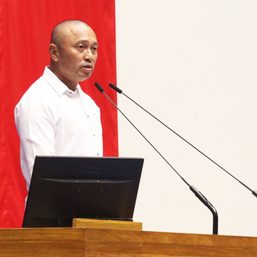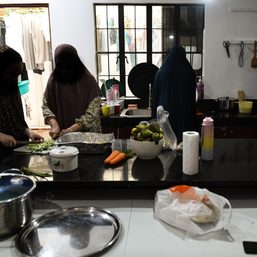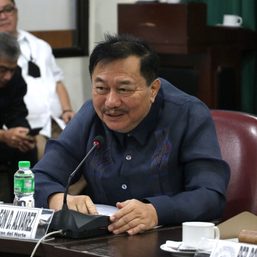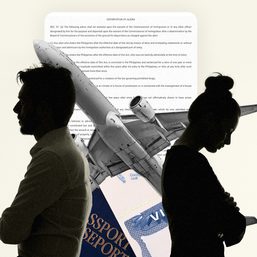SUMMARY
This is AI generated summarization, which may have errors. For context, always refer to the full article.
The feared anti-terror law has taken effect in the Philippines beginning 12 am Saturday, July 18, according to Justice Secretary Menardo Guevarra.
Guevarra corrected an earlier Malacañang statement that the law will take effect on July 19.
“Considering that the law was published on July 3, it will take effect on July 18, which is the 15th day,” said Guevarra.
But the law was only physically published on the Official Gazette on July 6. The July 3 publication was done through the Gazette website.
“No basis for that. The online Official Gazette isn’t the Official Gazette. The printed Official Gazette prevails,” said former Supreme Court spokesperson Ted Te.
Guevarra cited the 2002 case People vs Nicolas which highlights that laws take effect 15 days after publication, but Te noted that the online Official Gazette was only launched past 2010 during the Aquino administration.
A more recent case, from 2008, is G.R. No. 170338 which rejected internet publication as the proper way of publication for laws and other rules. The Supreme Court said in that decision that even the Electronic Commerce Act “does not make the internet a medium for publishing laws, rules, and regulations.”
‘Wait for the IRR’
Although he said that the law takes effect on Saturday, Guevarra appealed for law enforcement to wait for the promulgation of the implementing rules and regulations or the IRR.
“It will be more prudent for law enforcement agents to await the promulgation of the IRR,” said Guevarra.
This, however, is just an appeal from the justice secretary and not an instruction.
“I have no authority to give instructions to police or military personnel,” said Guevarra, adding that he had not communicated this directly to Interior Secretary Eduardo Año, who supervises the police.
Generally, the effectivity of a law is not conditioned on the issuance of the IRR.
Asked if it’s still legal to implement the law without an IRR, Guevarra also kept his answer vague: “This is a legal question that, when ripe, may present itself for proper adjudication by the courts. I am not aware of any jurisprudential doctrine directly in point.”
“There are provisions where operational details need to be spelled out or standards clearly defined in the IRR for a proper implementation of the law,” Guevarra said without specifying which provisions.
The Department of Justice has 90 days from the law’s effectivity to promulgate the IRR.
‘Be vigilant’
With Saturday’s effectivity, Filipinos are told to “be vigilant.”
“Let us stand our ground, be vigilant, call out the authorities, push back and slay the Frankenstein they created as soon as it rears its ugly head in any guise, form, excuse, or justification,” said National Union of Peoples’ Lawyers president Edre Olalia.
Under the law, the anti-terror council can authorize the arrest without warrant of suspected terrorists and detain them for as long as 24 days.
Suspected terrorists are individuals who fall under these categories slammed by critics as too broad and prone to abuse:
- intimidating the general public
- creating an atmosphere or spreading a message of fear
- provoking or influencing by intimidation the government or any international organizations
- seriously destabilizing or destroying the fundamental political, economic, or social structures of the country
- creating a public emergency
- seriously undermining public safety
Terrorists are also those who threaten, plan, conspire to, propose to, and incite to commit terrorism.
A showing of dissent, such as protests, can be acts of terrorism if they are found with an intent “to cause death or serious physical harm to a person, to endanger a person’s life, or to create a serious risk to public safety,” according to the contested Section 4.
“As it is, this provision is one that the IRR may have to delve into more deeply. In addition, and as a precautionary measure, any such protest action should necessarily comply with local ordinances and existing health protocols, considering that the National Capital Region is still under general community quarantine (GCQ),” said Guevarra. (READ: Beware of that two-faced clause in the anti-terror law)
Designated terrorists risk getting their assets frozen upon the finding of probable cause of the anti-terror council. Designation is a distinct power of the council, separate from proscription which is done by a court.
The law’s sponsors said it will not be abused, even amid the spate of warrantless arrests over complaints against critical social media posts, which are now being targeted by the government for either cyberlibel or inciting to sedition charges.
“Let us put the proponents to task with their rhetorical assurances on the real target of the law and on purported respect for our hard-won rights,” said Olalia.
“We will not give up the fight, not today, not tomorrow, not ever, for we will not be muted and terrorized into submission,” Olalia added.
There are 9 petitions so far seeking to revoke parts or the entirety of the law. More are expected to be filed next week, but the Supreme Court is closed from Monday, July 20, to Wednesday, July 22, to give way to disinfection. – Rappler.com
Add a comment
How does this make you feel?





There are no comments yet. Add your comment to start the conversation.